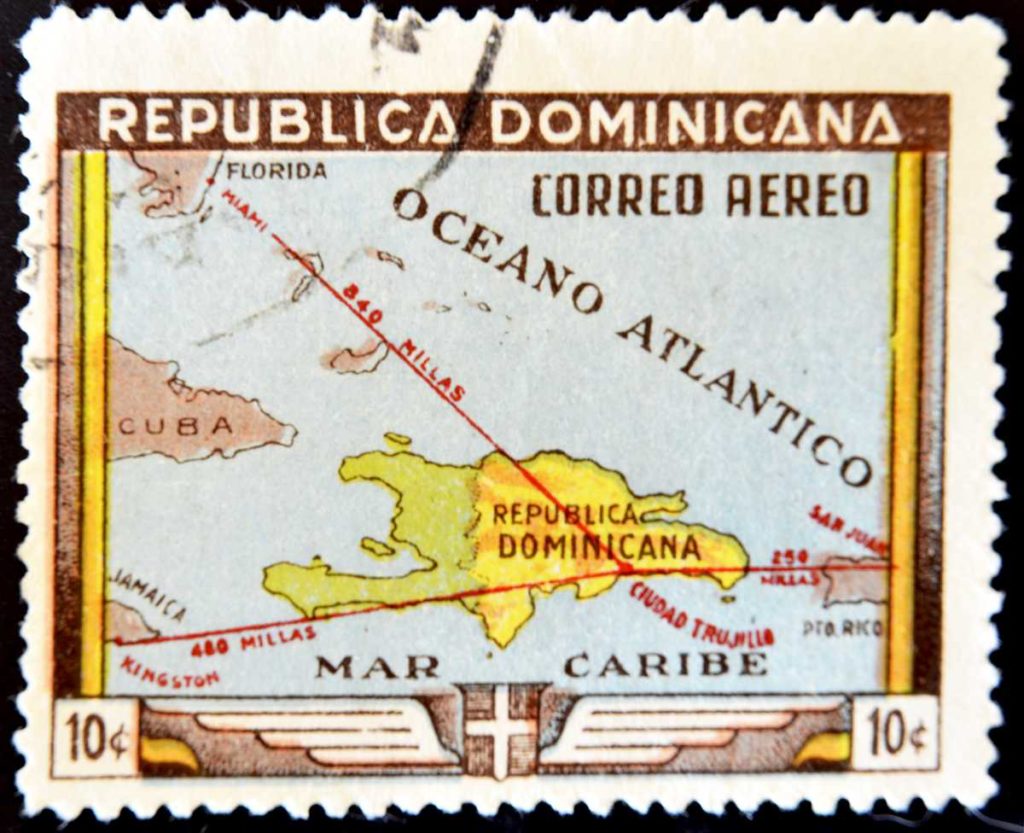The Dominican Republic‘s first stamps came in 1865, and were rather crude pieces with a coat-of-arms, the Spanish word CORREOS, and a value in reals. There is no country name, making these possibly difficult to identify for those not already in the know. These stamps came just after the Dominican Republic gained its independence from Spain. The Dominican Republic shares the Caribbean Island of Hispaniola with Haiti.
An 1866 series showed the coat-of-arms and a banner with the Latin legend DIOS•PATRIA•LIBERTAD (“God, Country, Liberty”) but still no country name. Several denominations of this design were issued.
In 1879, professional-looking stamps using the country’s name (in Spanish: REPUBLICA DOMINICANA) were finally issued. As if to make up for their early crudeness, Dominican Republic stamps tended from this point to have very nice designs, and even included an early example of a multi-colored stamp in 1914. The stamps of the Dominican Republic tended to show local scenes — waterfalls, notable buildings, animals, local heroes, et cetera.
See also: Dominica rare stamps for philatelists and other buyers
Note that although the Spanish word REPÚBLICA has an accent over the U, Dominican Republic stamps often omit this and use an un-accented U. Stamps that feature the name in lower case often include the accent mark.
There have been many types of special stamps issued and used in the Dominican Republic, including postage due stamps, air mail stamps, semipostals, official stamps, postal tax stamps, and others. There is also the usual array of maximum cards, first day covers, unhinged MNH stamps, and others. Check the subcategories for current offers.










